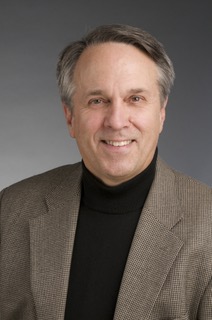Robert Evans, Ed.D.
Each month RG175 does a "deeper dive" to get to know one of our Independent School colleagues. This month we are spotlighting Robert Evans. Rob is a psychologist and school consultant. A former high school and pre-school teacher, and a former child and family therapist, he has consulted to more than 1,700 schools, public and private, both in the U.S. and internationally, including more than 700 independent schools. His particular interests are in leadership, in helping schools cope with change, in improving adult relationships within the school community, and crisis intervention. His presentations are known for their lively wit and plain talk. He is the author of many articles and three books: Seven Secrets of The Savvy School Leader: A Guide to Surviving and Thriving; The Human Side of School Change; and Family Matters: How Schools Can Cope with The Crisis in Childrearing. His new book, Hopes and Fears: Working with Today’s Independent School Parents, co-written with Michael Thompson, will be published by NAIS in February. To read more about Robert Evans, check out his website.
What do you enjoy most about your job as it pertains to Independent Schools?
First, I just love schools. Growing up, I loved the school I attended—Germantown Friends, in Philadelphia—and I started my adult life as a teacher, first in high school then in pre-school, before becoming a psychologist and school consultant. For my whole career I’ve been fascinated by the human dynamics of schools, especially among the adults—faculty, staff, parents. Independent schools are typically small enough to be manageable and address problems they encounter. They’re also full of devoted practitioners, but they do often need someone to help them resolve normal conflicts and issues that they’ve avoided, and someone who can help remind them of their competence and of the meaningfulness of their work. These are things I’ve learned to do and find terrifically fulfilling.
What are some of your greatest achievements?
This is not a question I’ve ever been asked; it feels odd to claim that I have great achievements. The “achievements” I’m proudest of are mostly things I’m grateful for the chance to do. I was the Executive Director of a small, wonderful, high-quality non-profit children’s mental health agency for nearly 40 years. I got to write three books about and I’ve been able to consult and speak in more than 1,700 schools and have found it, as I’ve indicated above, deeply gratifying.
How has Covid-19 affected your job/business and how have you adapted?
Instead of traveling to 30 schools and a dozen conferences per year and typically spending a full day at each, I’ve been—like everybody else—working by Zoom. I’ve done nearly 400 Zoom calls and workshops since March. It’s not the same as being in person, and the sessions have to be shorter, but I’ve been grateful to be able to stay in touch with schools and to be useful during this extraordinary time. In this regard, because I’m a psychologist and because for many years I’ve done lots of heavy-duty crisis intervention in schools (after tragic deaths, suicides, sexual misconduct scandals, 9/11, etc.) I’ve been, in a sense, well prepared to help faculty, administrators, and parents as they cope with this crisis. As utterly unprecedented as Covid is, the basic elements of crisis coping apply to it.
What is your connection to RG175?
I have two. I’ve worked with almost all of the RG175 consultants back when they were heads of school. I’ve known a number of them well for years. Also, together with Michael Thompson, I presented at a number of RG175 sessions called, “So You Want to Be A Head?” These were for administrators aspiring to become heads. Michael and I would speak to them in the morning about the psychological and organizational dimensions of leadership and in the afternoon RG175 experts walked them through the whole application process. I always sat in on this because I enjoyed hearing the practical, plain-spoken advice they gave. (I loved hearing Clay Stites tell the group, “In your philosophy statement, don’t quote John Dewey—in fact, don’t quote anybody!” and also, “When they ask you why you’re applying to lead their school don’t say something like, ‘My wife and I have always wanted to live in the Bay Area.’”)
Anything you would like to add?
This is an enormously difficult time for school heads and administrators, the most challenging I have ever experienced. Most of them are utterly drained. I know of three who recently resigned abruptly. I’ve also heard from some heads who are in the latter stages of their careers and who are now thinking seriously about retiring earlier than they had planned. I think the need for the kind of support—and the kind of searches—that RG175 provides may be greater than ever. All of us whose mission is to take care of the caretakers need to keep our shoulders to the wheel.
